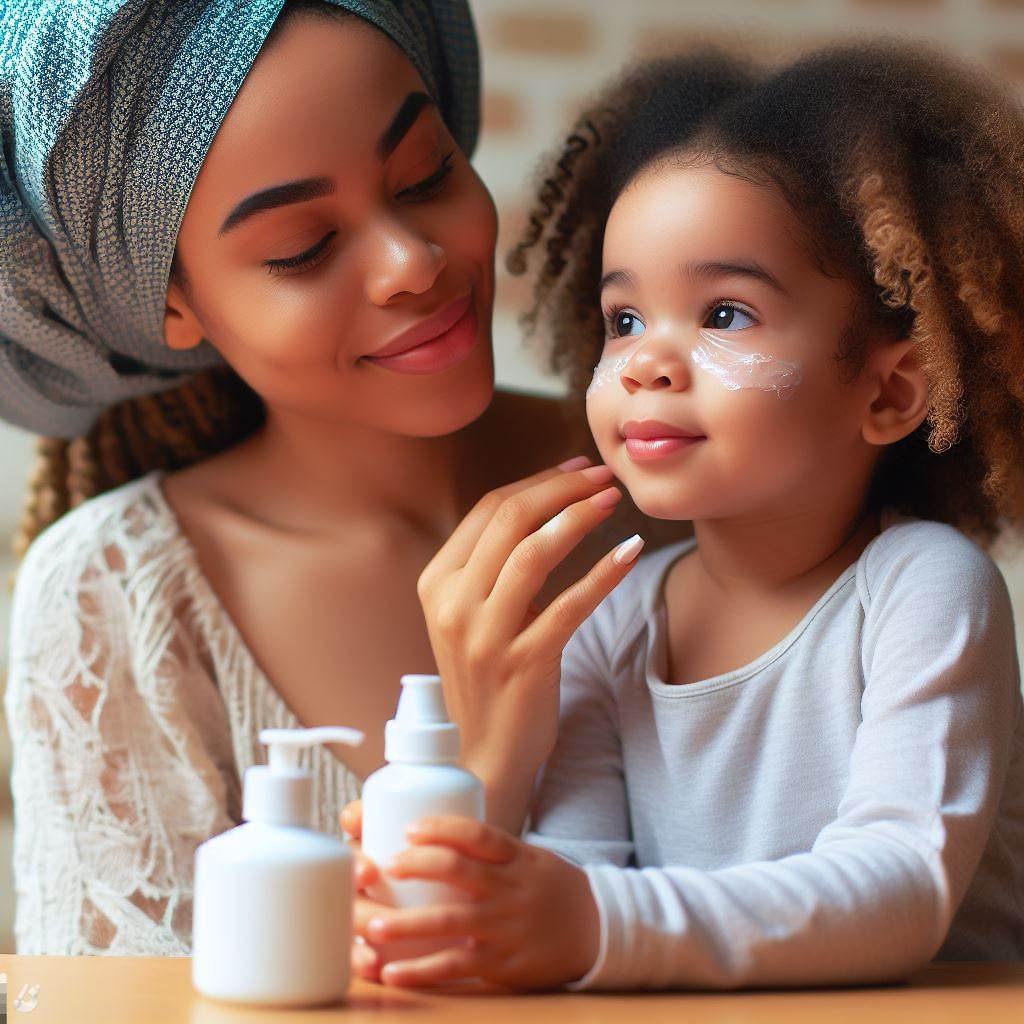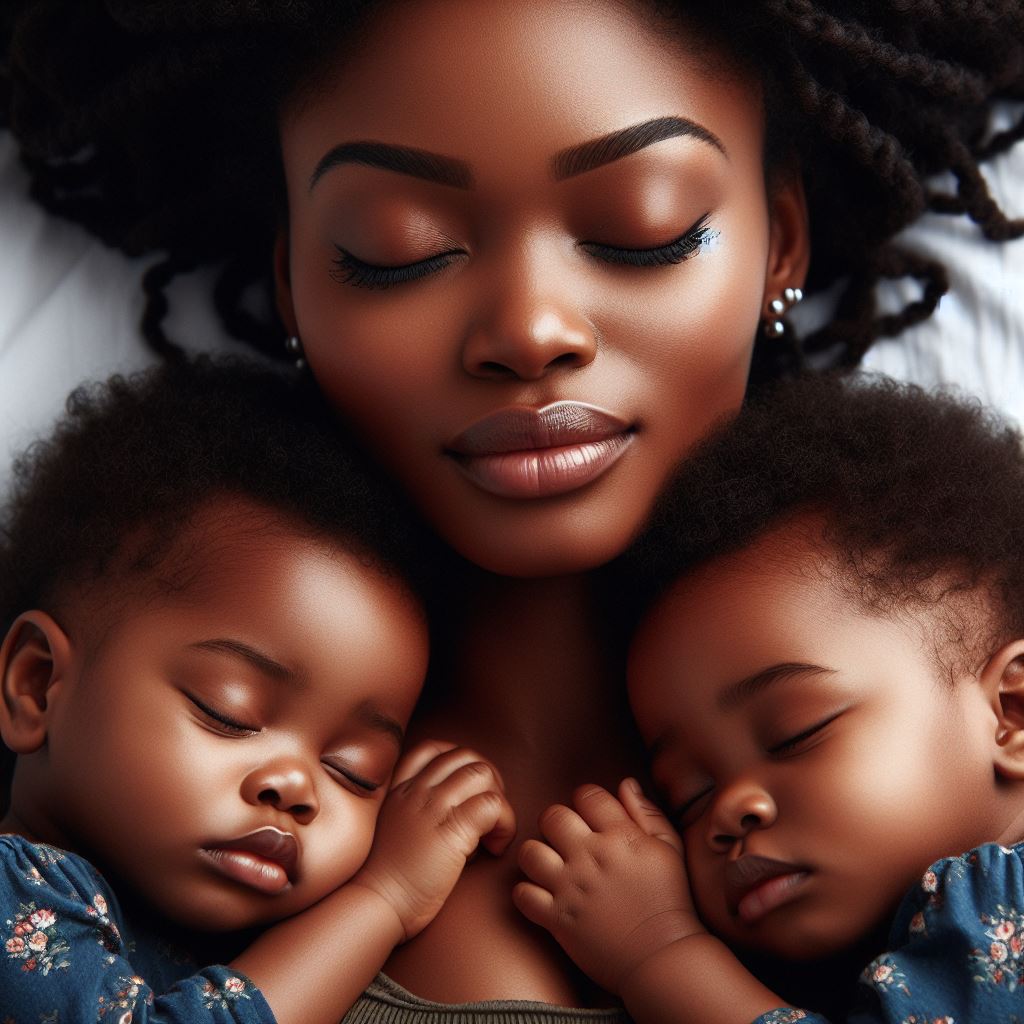Introduction
Welcoming a newborn into the world brings immense joy and responsibility.
One crucial aspect of newborn care is establishing a gentle and effective skincare routine.
A baby’s delicate skin requires special attention, as it is more susceptible to irritations and allergies.
Proper skincare not only maintains the baby’s skin health but also contributes to their overall well-being.
In the vibrant tapestry of Nigeria’s diverse culture, the significance of baby skincare is deeply ingrained.
Nigerian parents, with their rich traditions and warm family values, prioritize the health and comfort of their infants.
However, the challenge lies in navigating the myriad of skincare products available in the market.
In a country with diverse climates, ranging from humid coastal regions to drier inland areas, finding the right skincare routine becomes paramount.
Navigating the aisles of baby products can be overwhelming for parents, leading to uncertainty about what is safe and effective for their little ones.
This post aims to guide Nigerian parents through the maze of baby skincare, providing insights into safe and nurturing routines.
By understanding the unique needs of Nigerian infants in terms of climate, cultural practices, and available products, parents can make informed choices to ensure their babies’ skin remains soft, healthy, and free from irritations.
As we delve into this post, we will explore the fundamentals of safe baby skincare, from choosing the right products to establishing a routine that complements the Nigerian context.
Join us on this journey to discover the secrets of keeping your baby’s skin as tender as their first moments in this world.
Understanding Nigerian Infants’ Skin
Nigerian infants have beautiful and unique skin, but it requires special attention and care from parents and caregivers.
Understanding the common skin conditions and unique characteristics can help create a safe and effective skincare routine.
Parenting Made Just for You
Get personalized Parenting Solutions tailored to your child’s needs. Transform your parenting journey with expert guidance in 1-3 days.
Get StartedCommon skin conditions affecting Nigerian infants
Due to various factors such as climate, genetics, and environment, Nigerian infants may experience certain skin conditions more frequently than others. These conditions include eczema, heat rash, and cradle cap.
- Eczema is a common skin condition among infants, characterized by dry, itchy, and inflamed skin. It can cause discomfort and irritability in babies. To manage eczema, it is important to keep the skin moisturized and avoid triggers such as harsh soaps and excessive heat.
- Heat rash, also known as prickly heat, is another common condition among Nigerian infants. It occurs when sweat ducts become blocked, leading to the formation of small red bumps on the skin. To prevent heat rash, it is crucial to keep the baby cool and dress them in loose-fitting, breathable clothing.
- Cradle cap is a condition that affects the scalp and sometimes the face of infants. It causes flaky, scaly patches that may appear yellowish or brownish. Gently massaging the baby’s scalp with a mild baby oil or shampoo can help loosen and remove the scales.
Unique characteristics of Nigerian infants’ skin
Nigerian infants’ skin has some distinct features that require special care and attention.
- Higher melanin content: Nigerian infants have higher levels of melanin, which gives their skin a darker tone. Melanin provides natural protection against the harmful effects of the sun, but it does not make them immune to sunburn. It is still important to apply sunscreen regularly when exposing the baby to sunlight.
- Higher susceptibility to dryness: The hot climate in Nigeria can lead to increased dryness and dehydration in infants’ skin. It is important to moisturize their skin regularly with gentle and hydrating products to prevent dryness and maintain healthy skin.
- Sensitivity to certain products: Nigerian infants’ skin is delicate and can be sensitive to certain skincare products. Harsh chemicals, fragrances, and dyes can cause irritation and allergic reactions. It is recommended to choose hypoallergenic and fragrance-free products specifically designed for babies.
In fact, understanding the common skin conditions and unique characteristics of Nigerian infants’ skin is essential for creating a safe and effective skincare routine.
By being aware of these factors, parents and caregivers can ensure that the baby’s skin remains healthy, moisturized, and protected.
Read: Cultural Considerations in Baby Feeding
Establishing a Safe Baby Skincare Routine
Establishing a safe skincare routine is vital for the well-being of Nigerian infants.
As their skin is delicate and sensitive, it requires extra care and attention.
By following a few basic practices, you can ensure your baby’s skin remains healthy and protected.
Basic cleaning and bathing practices
To begin with, it is important to determine the frequency of bathing that is suitable for your Nigerian infant.
While some babies may require daily baths, others may need them less frequently.
Adapting your bathing frequency according to your baby’s needs will prevent unnecessary dryness or irritation.
When it comes to cleansers, opt for mild and fragrance-free options.
Harsh ingredients and strong fragrances can strip your baby’s skin of its natural moisture and cause irritation.
Look for gentle cleansers specifically formulated for infants to keep their skin clean without causing harm.
Unveil the Perfect Name that Tells Your Family's Story
Let us help you find a name that embodies your family's values, traditions, and dreams. Our personalized consultation weaves cultural insights to create a name that's uniquely yours.
Get StartedAfter bathing, take care when drying your baby’s skin. Instead of rubbing the towel vigorously, gently pat the skin dry.
This helps to prevent irritation and preserve the skin’s natural moisture.
Moisturizing Nigerian infants’ skin
Regular moisturization is crucial for Nigerian infants’ skin, keeping it hydrated and preventing dryness.
When selecting a moisturizer, opt for products specifically designed for infants with sensitive skin.
Avoid products that contain harsh chemicals or fragrances that may cause irritation.
After bathing, apply moisturizer immediately to help seal in the moisture.
This will assist in maintaining your baby’s skin hydration levels throughout the day.
Pay special attention to areas of your baby’s body that are prone to dryness and irritation, such as the elbows, knees, and cheeks.
Applying an extra layer of moisturizer to these areas will help prevent dry patches and discomfort.
Sun protection for Nigerian infants
Protecting your Nigerian infant from harmful UV rays is of utmost importance.
Even in Nigeria’s climate, where the sun can be intense, it is crucial to shield your baby’s delicate skin from potential damage.
Choose a baby-safe sunscreen with a high SPF to protect your baby’s skin from UV rays.
Apply it generously to exposed areas, such as the face, arms, and legs, before heading outdoors.
Beyond sunscreen, dress your baby in protective clothing that covers as much skin as possible.
Lightweight, long-sleeved clothing and wide-brimmed hats can offer additional protection from the sun’s rays.
By establishing a safe baby skincare routine, you can ensure the health and well-being of your Nigerian infant.
Basic cleaning and bathing practices, moisturizing, and sun protection are key elements to consider.
Always choose gentle products and be consistent in your routine to keep your baby’s skin safe and healthy.
Read: Preventing Allergies in Nigerian Babies: Tips

Choosing Suitable Skincare Products for Nigerian Infants
Importance of reading product labels
When choosing skincare products for Nigerian infants, it is essential to carefully read product labels.
Product labels provide vital information about the ingredients and potential allergens present in the product.
Parents should look out for any harmful chemicals, fragrances, or preservatives that may cause irritation or allergic reactions.
By reading product labels, parents can make informed decisions and select products that are safe and gentle for their infants’ delicate skin.
Avoiding products with harsh chemicals
It is crucial to avoid skincare products for Nigerian infants that contain harsh chemicals.
Chemicals like parabens, sulfates, phthalates, and artificial colors can harm the delicate and sensitive skin of infants.
These chemicals can cause skin dryness, irritation, allergies, and are best avoided for the overall well-being of the baby.
Opting for products with natural ingredients will help maintain the skin’s natural moisture and protect it from damage.
Opting for natural or organic skincare products
Choosing natural or organic skincare products for Nigerian infants can greatly benefit their delicate skin.
Natural products are free from harmful chemicals, synthetic fragrances, and dyes that can potentially harm the baby’s skin.
Organic products are made from natural ingredients and are cultivated without the use of pesticides, making them safer for infants.
These products are milder, gentler, and less likely to cause any skin irritation or allergic reactions.
Seeking recommendations from pediatricians or dermatologists
When unsure about suitable skincare products, it is best to seek recommendations from pediatricians or dermatologists.
These healthcare professionals have extensive knowledge and expertise in caring for infants’ sensitive skin.
They can provide valuable advice on products that are safe, effective, and suitable for Nigerian infants.
Following their recommendations will ensure that parents are using the best products for their baby’s skincare routine.
In short, choosing suitable skincare products for Nigerian infants is crucial for their well-being.
By reading product labels, avoiding harsh chemicals, opting for natural or organic products, and seeking recommendations from healthcare professionals,
parents can ensure that their infant’s skin remains healthy, protected, and free from any potential irritants or allergens.
Read: Pediatrician Visits: What Nigerian Parents Must Ask
Common Skin Concerns
As a parent, one of your top priorities is to keep your baby safe and healthy.
This includes paying attention to their skincare routine to address common skin concerns.
In Nigeria, where the climate is often hot and humid, infants are prone to certain skin conditions such as eczema flare-ups, heat rash, and cradle cap.
Treating and preventing eczema flare-ups
Eczema is a chronic condition characterized by dry, itchy, and inflamed skin. To effectively manage eczema in Nigerian infants:
- It is important to establish a consistent skincare routine. This includes regular bathing and moisturizing to keep the skin hydrated and prevent dryness.
- Use fragrance-free skincare products specifically formulated for sensitive skin. Fragrances can irritate the skin and trigger eczema flare-ups.
- Follow your pediatrician’s instructions on prescribed medications, such as corticosteroid creams or ointments. They help reduce inflammation and relieve itching.
Managing heat rash in Nigerian infants
Heat rash, also known as prickly heat, occurs when sweat glands become blocked, leading to small itchy bumps on the skin. To manage heat rash:
- Keep infants cool and well-ventilated by avoiding overdressing them. Dress them in loose-fitting clothes to allow air circulation.
- Choose lightweight and breathable fabrics like cotton. These allow sweat to evaporate, reducing the risk of heat rash.
- Apply cornstarch or talc-free powders to areas prone to heat rash. These powders can help absorb excess moisture and provide soothing relief.
Dealing with cradle cap
Cradle cap is a common condition characterized by patchy, greasy, and flaky skin on the scalp. To manage cradle cap:
- Perform gentle scalp massages using your fingertips or a soft brush. This loosens the scales and promotes natural oil distribution.
- Use a mild baby shampoo formulated for sensitive skin. Gently wash the hair, avoiding harsh scrubbing that can worsen the condition.
- Brush the hair with a soft baby brush to remove the loosened scales. Brushing also improves circulation to the scalp, aiding in the healing process.
By following these simple skincare routines, you can effectively address and prevent common skin concerns in Nigerian infants.
Remember to consult your pediatrician if the condition worsens or persists.
Read: Hydration for Babies: Water and Beyond
Conclusion
In this comprehensive guide to safe baby skincare routines for Nigerian infants, we’ve delved into crucial aspects of maintaining the delicate skin of your little ones.
We started by emphasizing the significance of choosing skincare products that are specifically formulated for babies, considering the unique needs of their sensitive skin.
We explored the importance of reading ingredient labels to avoid harmful chemicals and allergens that could potentially harm your infant’s skin.
Furthermore, we highlighted the significance of regular baths using mild, fragrance-free cleansers and the importance of gentle pat-drying to prevent skin irritation.
We discussed the role of moisturizers in keeping the skin hydrated and protected, emphasizing the use of products with natural ingredients such as shea butter or coconut oil.
It cannot be stressed enough how crucial it is to prioritize safe baby skincare.
The early months and years of a child’s life are pivotal for healthy skin development.
Harmful chemicals and harsh products can disrupt the delicate balance of their skin, leading to irritations, allergies, and long-term consequences.
Parents play a pivotal role in safeguarding their infants from potential skincare hazards.
By making informed choices and opting for gentle, baby-friendly products, you contribute to the overall well-being and comfort of your child.
Remember, a little extra care today can pave the way for a lifetime of healthy skin.
As Nigerian parents, it is essential to be vigilant about the products we choose for our infants.
The market offers a variety of baby skincare options, and by staying informed and selective, we can ensure that our choices promote, rather than compromise, our child’s skin health.
In the end, let’s commit to providing the best care for our little ones by adopting safe baby skincare routines.
Your infant’s skin is precious, and with the right products and practices, you can create a nurturing environment that supports their healthy development.
Choose wisely, stay informed, and embrace the joy of watching your baby thrive with radiant and resilient skin.




